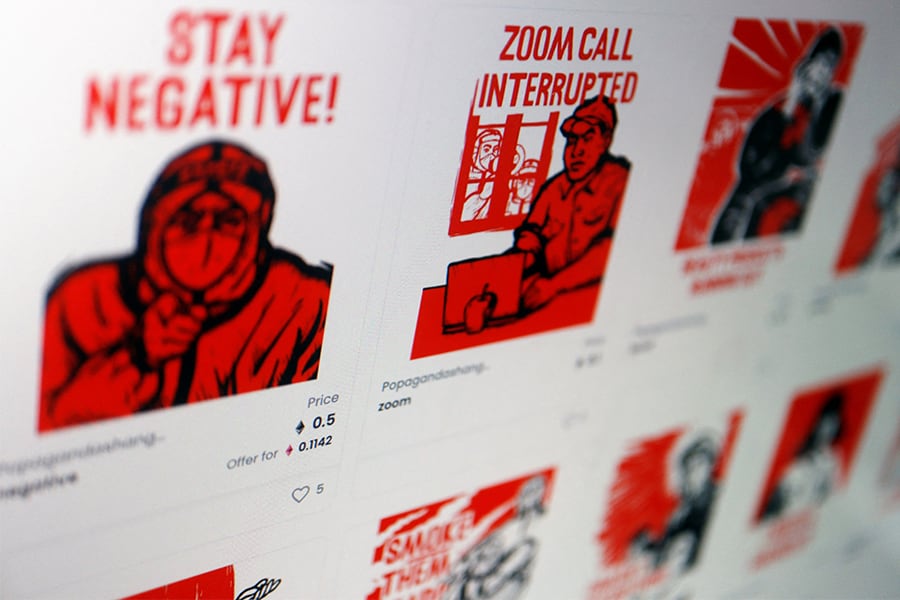
How Shanghai residents are using NFTs to record Covid lockdowns, combat censorship
Residents in Shanghai who have been on a month-long lockdown are minting videos, photos and artworks capturing their ordeal in the form of non-fungible tokens to share their experiences while also avoiding deletion
 POPaganda, a non-fungible token (NFT) collection created by Malaysian artist Simon Fong depicting life under the coronavirus disease (COVID-19) lockdown in China's Shanghai. Image: Florence Lo/ Reuters
POPaganda, a non-fungible token (NFT) collection created by Malaysian artist Simon Fong depicting life under the coronavirus disease (COVID-19) lockdown in China's Shanghai. Image: Florence Lo/ Reuters
HONG KONG (Reuters) - Shanghai residents are turning to the blockchain to preserve memories of the city's month-long Covid-19 lockdown, minting videos, photos and artworks capturing their ordeal as non-fungible tokens to ensure they can be shared and avoid deletion.
Unable to leave their homes for weeks at a time, many of the city's 25 million residents have been unleashing their frustrations online, venting about draconian lockdown curbs and difficulties procuring food, and sharing stories of hardship, such as patients unable to get medical treatment.
That has intensified the cat-and-mouse game with Chinese censors, which have vowed to step up policing of the internet and group chats to prevent what they describe as rumours and efforts to stoke discord over seething public frustration with the lockdown.
While some people have defiantly continued reposting such content, others are turning to NFT marketplaces like the world's largest, OpenSea, where users can mint content and buy or sell it using cryptocurrencies, attracted in part by the fact that data recorded on the blockchain is unerasable.
The height of Shanghai's lockdown minting moment is rooted in April 22, when netizens battled censors overnight to share a six-minute video entitled "The Voice of April", a montage of voices recorded over the course of the Shanghai outbreak.







